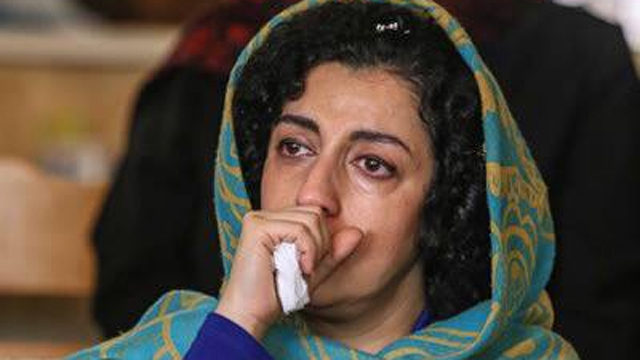Iran Appeals Court Upholds 16-Year Prison Sentence Against Rights Activist Narges Mohammadi

Mother of Two Young Children Will Be Eligible for Release Only After 10 Years
An Appeals Court has upheld the 16-year prison sentence issued against prominent human rights defender Narges Mohammadi. She will become eligible for release after serving 10 years in prison, according to a statement by the Defenders of Human Rights Center.
On September 19, 2016 Mohammadi and her lawyers appeared at Branch 36 of Tehran’s Appeals Court to present evidence against the preliminary sentence, “but the Appeals Court had already made its ruling,” said Mohammadi’s husband, Taghi Rahmani, who currently lives in France with the couple’s son and daughter.
Rahmani added that the evidence the prosecution presented against Mohammadi had been compiled according to instructions from the court itself.
Mohammadi, winner of the 2011 Per Anger Prize for her activism in human rights, was arrested in 2009 and sentenced to 11 years in prison in October 2011 on charges of “assembly and collusion against national security,” “membership in the [now banned] Defenders of Human Rights Center,” and “propaganda against the state.”
The Appeals Court reduced her sentence to six years in prison, and in 2013 she was released from Zanjan Prison on 600 million toman (approximately $200,000) bail for medical reasons.
She continued her activism outside prison and in March 2014 met with the European Union’s foreign policy chief Catherine Ashton at the Austrian Embassy in Tehran to discuss Iran’s human rights issues.
After the meeting, pressure on Mohammadi grew, and she was subjected to months of harassment and interrogations by the security establishment. Her arrest on May 5, 2015, ostensibly on the older charges, was more accurately related to Mohammadi’s visit with Ashton and her continued peaceful activism.
The International Campaign for Human Rights in Iran has called on the Islamic Republic to immediately release the unlawfully imprisoned human rights advocate and end the years of suffering she has unjustly endured behind bars.






